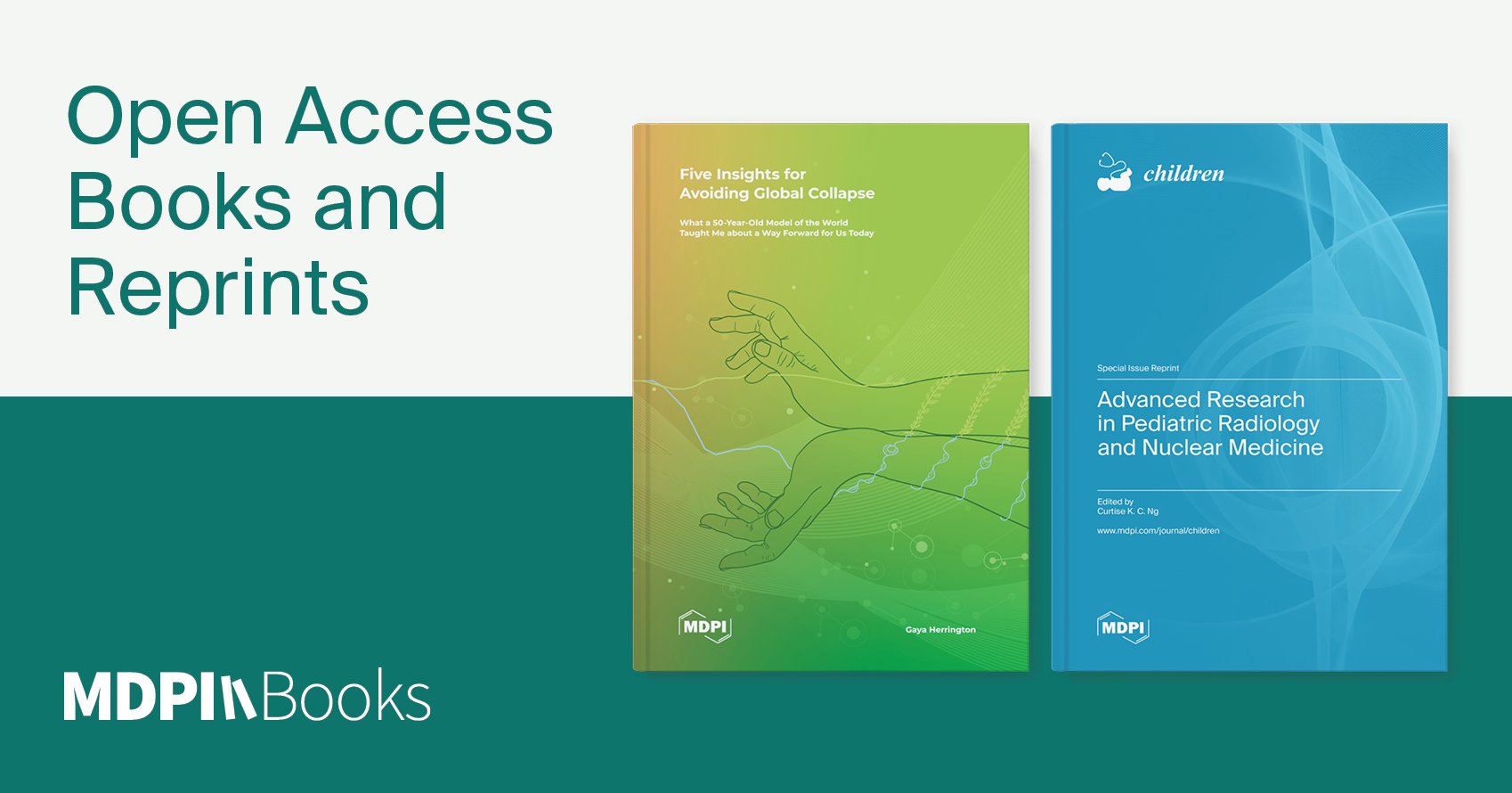
The Difference Between Reprints and Open Access Books
Here at MDPI Books, you may have noticed that we use specific terminology to describe our publication services. Two of the most common terms you will come across are “Reprints” and “Open Access Books”. But what exactly do we mean when we use these terms, and what are the differences between the two?
Reprints
Although assigned an International Standard Book Number (ISBN) and Digital Object Identifier (DOI), the most important thing to remember about Reprints is that they are not traditional books.
Unlike traditional books, Reprints consist of a reproduction of a collection of articles from an MDPI journal. They serve as a way to compile and disseminate selected articles from MDPI journals in a cohesive manner. The research collected in Reprints focuses on specific research questions and is subjected to rigorous peer review.
Reprints are made available on MDPI Books’ website as PDF downloads and can also be obtained in print form.
Open Access Books
Open access means that research is freely available to everyone with an internet connection. Open Access Books offer significant visibility advantages, often exceeding that of traditional books.
Unlike Reprints, Open Access Books present entirely original work that has not seen prior publication in academic journals.
Open Access Books take many forms to accommodate diverse scholarly needs. Edited Books, for example, are a curated assemblage of chapters contributed by different authors, overseen by one or a group of editors. In contrast, Monographs are comprehensive and in-depth contributions to a single academic subject, or an aspect of a subject. Open Access Books are also not subject to rigorous peer review, but rather a varying review process.
The versatility of Open Access Books extends to their suitability for a range of purposes within academia. They can for example serve as Academic Anniversary Books or Textbooks and may stand alone or become part of a broader series. Open Access Books are particularly well-suited to Perspectives (showcasing current developments and future directions of a field), Case Reports (detailing medical information and outcomes, Histories (of specific institutions or individuals), and Biographical Explorations (of significant individuals or memorial volumes dedicated to both people and institutions).
Additional Information
The funding models, archiving practices, and formatting flexibility of Open Access Books and Reprints may differ, reflecting the diverse roles these two forms of scholarly communication play within academia.
Need more information on publishing proposals, manuscript formatting aspects, Open Access rights or fundings?
Visit our Frequently Asked Questions: https://www.mdpi.com/books/faq